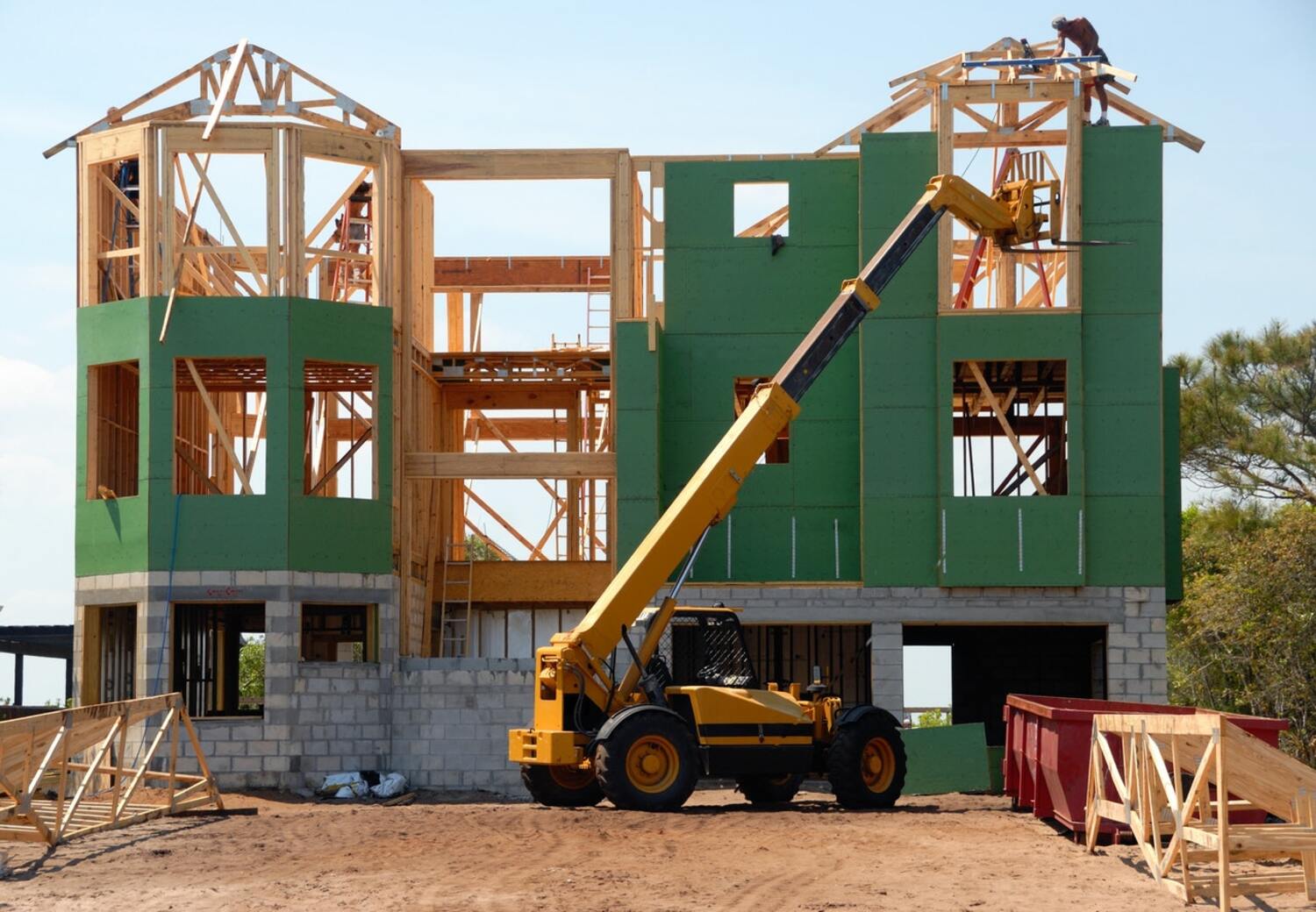What is a Modular Home + Is it Worth the Big Investment?

If you’re looking to buy a home, have you ever considered a modular one? “What is a modular home?” you ask. They are not the same as manufactured homes as others may think.
If you’re hesitant about buying a modular home, I’ll point out the significant differences that make modular homes a viable option. Maybe you’ll give modular homes a second thought on your next home purchase!
I’m not a real estate agent, but I am a real estate investor. Therefore, it’s necessary to understand all real estate forms and determine if it’s worth the investment!
What is a Modular Home?
A modular home is a home built in an indoor, off-site location under a controlled environment, usually built indoors. Builders construct the pieces or modules of the house individually. Afterward, the modules are sent to the site and assembled to create a new home.
A modular home is often called a factory-built, manufactured home-built, prefabricated home. However, those terms are outdated, and no one says prefab home anymore, especially since modular homes have come a long way!
Mobile Home vs. Modular Home
A modular home may have been built off-site like a mobile home. Aside from that, modular homes differ from a double-wide or a mobile home.
The main difference is that builders constructed mobile homes on a steel frame. It is one of the few requirements set by the U.S. Department of Housing and Urban Development (HUD).
The steel frame supports the weight and structure of the mobile home. Furthermore, a vehicle can tow a mobile home due to its frame. Hence, the name mobile home!
Below are other differences caused by the steel frame:
It’s a Vehicle
Designers of the mobile home intended them to be temporary homes. However, people have used them longer than planned.
The frame, which allows a vehicle to tow it, cannot be removed. Thus, a mobile home license as a vehicle.
Additionally, a mobile home’s value depreciates over time like other automobiles, such as cars and trucks.
Building Codes
Builders install a modular home into a permanent foundation, also going above a crawl space or basement. Therefore, it’s home construction process adheres to the International Residential Code (IRC), which requires its construction to adhere to state and local building codes.
Site-built homes also follow the same local and state building codes and safety standards.
On the other hand, HUD code oversees mobile homes, primarily due to the steel frame. Thus, mobile homes don’t have to follow strict requirements like state and local home building codes.
Limited Design
A mobile home is limited in design by the steel frame, mostly since people can transport them multiple times.
The frame bounds a mobile home’s dimensions to set square footage. For this reason, mobile homes, in general, look the same and have the same square foot.
Conversely, modular home companies have in-house engineering departments that can help buyers customize their home to their liking.

What Are Some Advantages of a Modular Home?
Shorter Timeline
One of the most significant advantages of a modular home is that builders can complete it in a relatively shorter amount of time compared to a traditionally built home!
For example, modular homes don’t suffer from typical on-site delays because they are built in a modular home facility or a modular home factory. Usually, these on-site delays caused predominantly by adverse weather conditions.
Furthermore, modular home construction does not expose the materials to the weather due to its controlled environment. In contrast, a local builder for a regular stick-built home delivers the materials to the site outdoors.
More Environmental Friendly
The building process used for modular homes is more efficient in how they use the materials. Traditional homes that are constructed at the building site order an excess of materials. Unfortunately, not all the material is put to good use and go to waste.
Inexpensive Customization
The design options for a typical site-built home are limited to a handful of blueprints and floor plans. This practice allows construction companies to stay within a budget because they are familiar with the cost of materials and labor.
Unfortunately, if a home buyer wanted a real custom home, it would cost much more because it’s outside their usual blueprints and require an architect.
With a modular home design, many of these manufacturers also have an in-house engineering department. This feature allows potential buyers to avoid the cost of hiring an architect and puts more money in your pocket.
Cost Savings
Building a modular home can save you money. The completion of a modular home compared to a traditionally made on-site house is much shorter. Thus, the interest charged for a new construction loan is not as much.
The build for a modular home is a fixed cost, while the build for an on-site build works on a cost-plus basis. Therefore, the price of construction at the home site can rise quickly, including accruing interest charges!
What Are Some Disadvantages of a Modular Home?
Financing Might Be Difficult
Some lenders may not be familiar with the modular home loan process. And, they might think you should be applying for mobile home loans. Therefore, you’ll need to work with a lender familiar with modular construction projects.
Zoning
Even though the quality of a modular home adheres to the requirements of the state and local regulations, not all areas allow builders to assemble modular homes on their land.
You may have found a prime location for the future. However, it’s in your best interest to research the zoning ordinances. These laws may restrict your options on building and deter you from going towards the modular home route.
Additional Costs
Although the cost of a modular home is a fixed price, that expense does not cover the additional cost associated with building on new land . For example, a concrete company needs to pour the foundation, and other systems need to be coordinated, such as plumbing, HVAC, and electrical work.
Therefore, before you commit yourself to hire a company to build a modular home, make sure you always collect estimates on the additional work required before assembling the modules.
Is Modular Home a Good Investment?
I’ve written a post asking a similar question, “Is Buying a House a Good Investment?”
Any property that you are the only occupants of should not consider it as an investment. Unless the property can generate passive income or help you acquire more assets, the property is just a home.
However, when discussing a modular home’s resale value, it’s comparable to homes built on-site. Appraisers determine the value of a modular home against other on-site built counterparts in the local real estate market.
Modular homes often get associated with manufactured homes, which gives people the impression they lose their value. However, they do not have the steel frame as seen on a mobile home.
As mentioned earlier, the frame causes a mobile home to license as a vehicle. It loses its value over time like a depreciating asset. Therefore, a modular home has a much better resale value, unlike a mobile home!
Conclusion
If you’re looking to buy a house or a condo, maybe give a modular home a thought. Many modular homes today are hard to distinguish from traditional on-site constructed homes.
You may be concerned that a modular home is the same as a mobile home or double-wide. A manufactured home built prior to arriving on-site doesn’t necessarily mean it as a mobile home.
Although a builder builds both types of homes at a building facility, that is the only thing they have in common. The differing factor is the frame the mobile house is on.
Thus, if you’re looking to save some money and still get some custom flair out of your home, you may find modular homes as a great second option. Give way to the modern manufactured homes!






